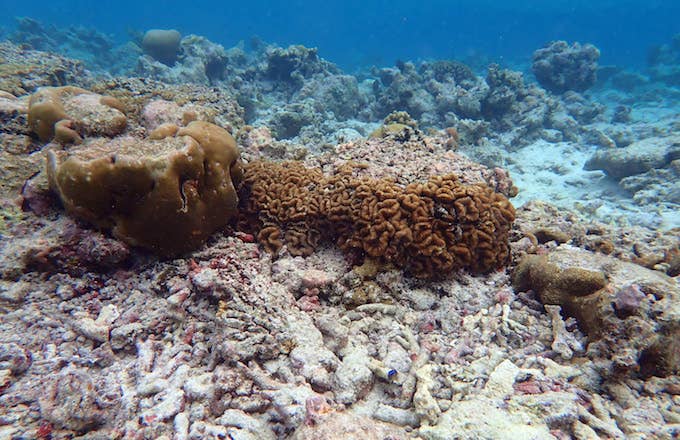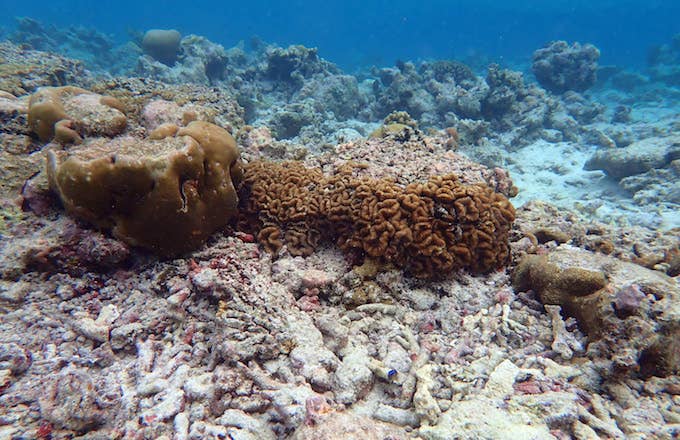
It has been said time and time again—Earth is headed to hell in a hand basket. Now, a new study titled "Record-Setting Ocean Warmth Continued in 2019" further proves this fact by taking a look at the world's oceans and showing just how much of an absolute disaster we have created. You know, to put it lightly.
The study looks at the temperature of the ocean surface to 2,000 meters deep, and found that the amount of warming amounts to 228,000,000,000,000,000,000,000 (228 sextrillion) Joules of heat. If you're wondering what that means, the paper's lead author Lijing Cheng presents a more digestible way of comprehending that staggering sum.
"The amount of heat we have put in the world's oceans in the past 25 years equals to 3.6 billion Hiroshima atom-bomb explosions," Cheng said, per CNN. "This measured ocean warming is irrefutable and is further proof of global warming. There are no reasonable alternatives aside from the human emissions of heat trapping gases to explain this heating."
If that Hiroshima atom-bomb comparison went a little over your head, another author of the paper, John Abraham, broke it down a bit further, saying, it's as if "five to six Hiroshima bombs of heat each second" were being dropped into the world's oceans. The Hiroshima atom-bomb was about 63,000,000,000,000 Joules.
The study of the oceans generally serves a direct indicator for understanding how climate change is impacting our world. The findings in this study show that if the oceans are warming at an alarmingly fast rate, it only reiterates something we have heard many times before. Global warming is a serious threat that shows no signs of slowing down unless more start to do their part.
"The price we pay is the reduction of ocean-dissolved oxygen, the harmed marine lives, strengthening storms and reduced fisheries and ocean-related economies," Cheng said. "However, the more we reduce greenhouse gasses, the less the ocean will warm."

